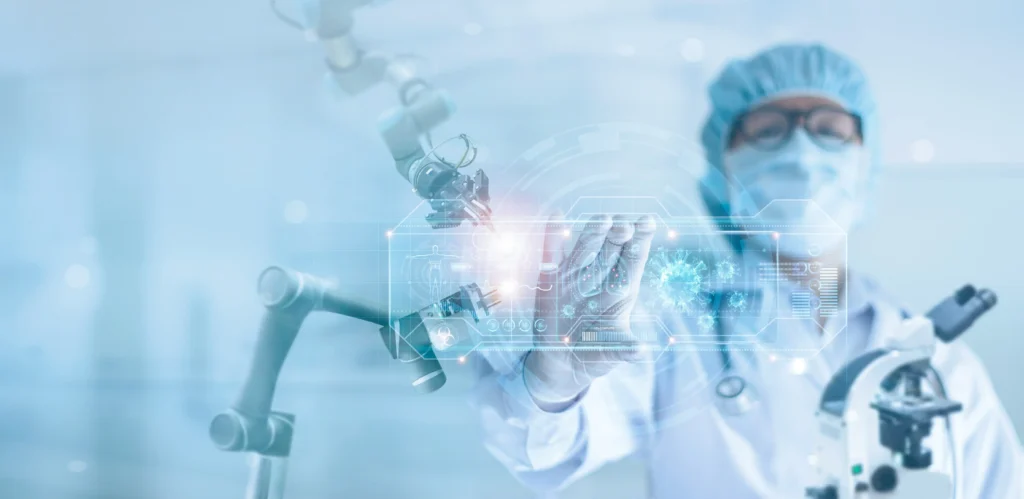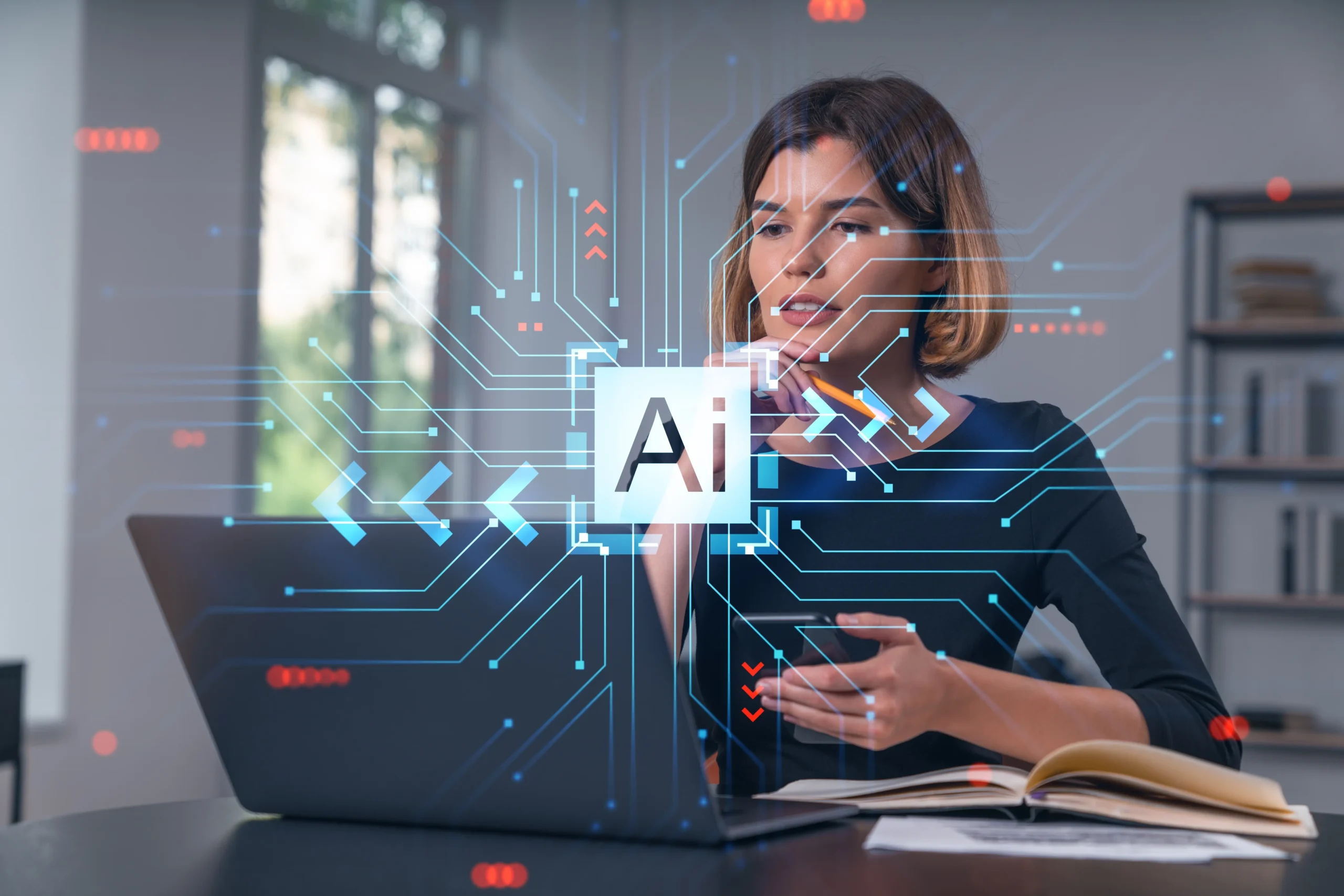Artificial intelligence has become a ubiquitous technology in the digital age in which we live, and it has an impact on every aspect of our daily lives. Artificial intelligence is redefining our relationship with technology and its impact on our lives, from how we receive medical care to how we interact with our homes and workplaces. This blog post will look at the various areas in which AI is present and how we can leverage its abilities to improve our quality of life. Artificial intelligence has many applications that are changing the way we live and work, from more accurate medical diagnostics to smarter, more efficient homes.
Artificial intelligence in healthcare
In the digital age in which we live, artificial intelligence has become a ubiquitous technology and has an impact on every aspect of our daily lives. Artificial intelligence is redefining how we relate technology to our lives, from how we receive medical care to how we interact with our homes and workplaces. This blog post will discuss the various facets of AI and how we can use its abilities to improve our quality of life. Artificial intelligence has many applications that are revolutionizing life and work, including more accurate medical diagnoses and smarter, more efficient homes.

In addition to diagnostics, Artificial Intelligence is also helping in the development of personalized medical treatments. Artificial intelligence algorithms can find the most effective therapies by analyzing patients’ genetic and medical data. They can also predict side effects. This allows physicians to make more informed decisions and provide each patient with more individualized care.
Medical data management is another crucial part. Artificial intelligence can help organize, analyze and extract relevant information from large data sets due to the massive amount of information generated in the healthcare field. This helps to detect epidemiological trends, improve treatment protocols and make evidence-based clinical decisions.
In short, artificial intelligence is revolutionizing the way medicine is practiced, from diagnosis to treatment to data management. Its ability to process large amounts of information and detect complex patterns makes it an invaluable tool for improving accuracy and efficiency in healthcare.
Artificial intelligence in the home
Our homes are becoming smarter and more connected spaces thanks to artificial intelligence. Artificial intelligence has become ubiquitous in our daily lives with the proliferation of smart home devices such as virtual assistants, thermostats and security systems. These devices can anticipate and adapt to our needs using machine learning algorithms that learn from our preferences and habits.
Virtual assistants, such as Amazon’s Alexa or Google Assistant, are common examples of artificial intelligence in the home. These devices can do many things, such as play music and control other smart devices in the home with voice commands. They provide an easy-to-understand and convenient user experience, using natural language processing algorithms to understand and respond to our requests.
Home security systems are also incorporating artificial intelligence. Intelligent security camera systems can recognize faces and detect suspicious activity, analyze resident behavior and send real-time alerts. This improves peace of mind and security in homes.
Another example is smart energy management. Smart thermostats use machine learning algorithms to learn residents’ temperature preferences and automatically adjust the climate control to maximize energy efficiency and comfort. This not only reduces energy costs, but also helps reduce the household’s carbon footprint.
In short, artificial intelligence is bringing convenience and automation into our homes in ways never before seen. Artificial intelligence is transforming our homes into smarter and more efficient places, such as virtual assistants, security systems and energy management.

Artificial intelligence at work
The incorporation of artificial intelligence into the work environment is generating a significant change in the way processes are managed and tasks are performed in a variety of economic sectors. Automation of repetitive tasks is one of the most affected aspects. Artificial intelligence algorithms can perform these tasks faster and more accurately than humans, allowing workers to focus on activities that require more creative and strategic skills.
Artificial intelligence is being used to improve business decision making in addition to automation. Artificial intelligence systems have the ability to analyze large amounts of business data and provide valuable insights that help business leaders make more informed strategic decisions. For example, in the marketing field, artificial intelligence algorithms can analyze customer behavior and predict future trends, allowing companies to more effectively adjust their marketing strategies.
Another important aspect is the optimization of business processes. Artificial intelligence can identify areas for improvement in operational processes and suggest ways to increase efficiency and reduce costs. This may include supply chain optimization, inventory management and production planning. By implementing artificial intelligence solutions, companies can improve their competitiveness and adapt more quickly to changes in the market.
In short, artificial intelligence is transforming the way work is done in various industrial sectors. From automating tasks to improving decision-making and optimizing processes, artificial intelligence is helping companies become more efficient, productive and competitive in an increasingly digitized world.
Artificial intelligence has become a ubiquitous tool in our daily lives, transforming multiple aspects of our existence in fascinating and profound ways. Artificial intelligence is having a significant impact on the way we live, work and interact with the world around us, from healthcare to home and work.
Artificial intelligence is revolutionizing healthcare medicine by providing more accurate diagnoses, personalized treatments and more efficient management of medical data. Artificial intelligence is making it easier to automate tasks, improve security and energy efficiency, and make our environments smarter and more connected. By automating processes, improving decision making and optimizing operational efficiency, artificial intelligence is changing the way tasks are performed and business decisions are made.
In short, artificial intelligence is present in all aspects of our lives and is improving our quality of life in many ways. It is exciting to think about the limitless potential of artificial intelligence to continue to transform and enhance our human experience as we move forward in this digital age.



